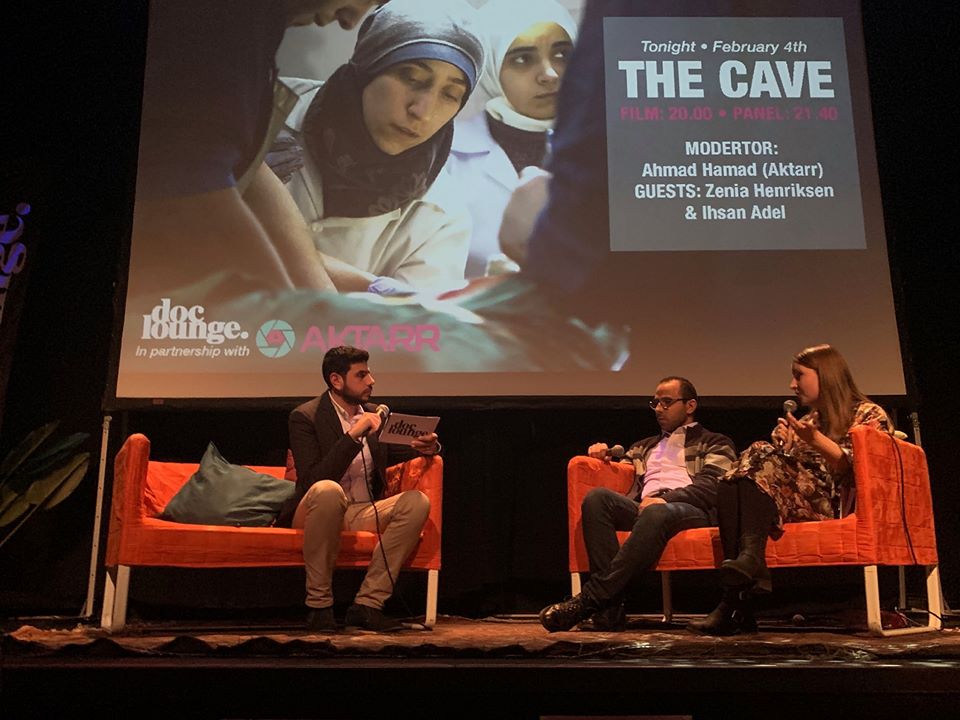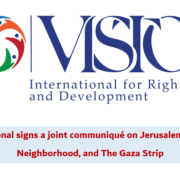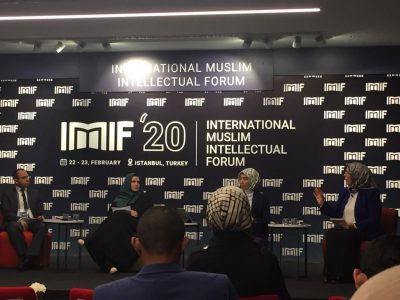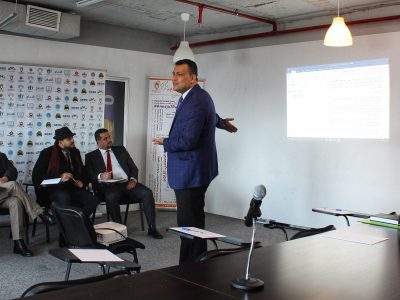Visto International for Rights and Development, represented by its vice president Ihsan Adel, took part in a discussion on the Syrian Oscar-nominated film titled “The Cave” on Tuesday evening in Malmö City, north of Sweden.
The display of the documentary film and the preparations for the discussion that followed were made possible in cooperation with Doc Lounge, which organizes events for documentaries, and Aktarr, a Swedish news channel addressing the Arab speaking communities in Sweden.
The screening, which featured stories of pain and hope, was attended by more than 150 participants, who varied between Swedes and refugees from Syria. The aim of this screening was to raise the collective responsibility and publicise the extent of violations suffered by the Syrians.
The discussion that followed was moderated by the media specialist on refugee issues Ahmed Abu Hamad, and was attended by Ihsan Adel, Visto International’s vice president and an international law expert, and Zenia Henriksen, the PhD candidate in the Department of Cross-cultural and Regional Studies at the University of Copenhagen.
The discussion tackled issues relating to justice, international law, war crimes, the documentation of the history of the Syrian revolution as well as the narration of the Syrian crisis and human rights during the conflict.
The screening was attended by more than 150 participants, who varied between Swedes and refugees from Syria, in the aim of raising the collective responsibility and publicise the extent of violations suffered by the Syrians.
In his intervention, Adel pointed out that the film shows the importance of the role played by cinema not only in raising awareness about human rights, but also in documenting violations and providing evidence to hold those responsible accountable.
Adel also noted that it is now possible to prosecute any of the parties to the conflict responsible for committing atrocities and other human rights violations in Syria. This can be done through the International Court of Justice, if we consider what happened in Syria as genocide crimes.
It can also occur through the International Criminal Court, in the countries where Syrians have sought asylum and provided that their host country is a party to the Rome Statute and hence have commitments to the court. Such countries include Sweden, Germany and Jordan.
Henriksen also talked about films documenting wars and conflicts, especially in Syria. She highlighted the extent of the difficulties facing filming and directing this type of films, where photographers live under great risks in order to document violations in the field as well as the difficulty of transferring footage with high quality out of conflict areas, bearing in mind journalists’ fear of being targeted by the warring parties and limited connectivity.
It is noteworthy that Visto International, which is based in Sweden and Jordan, aims in its work to enhance the role of the media in coverage to help protect human rights and provide journalists with lens that take human rights as a core to ethically and professionally cover issues of war and oppression.











